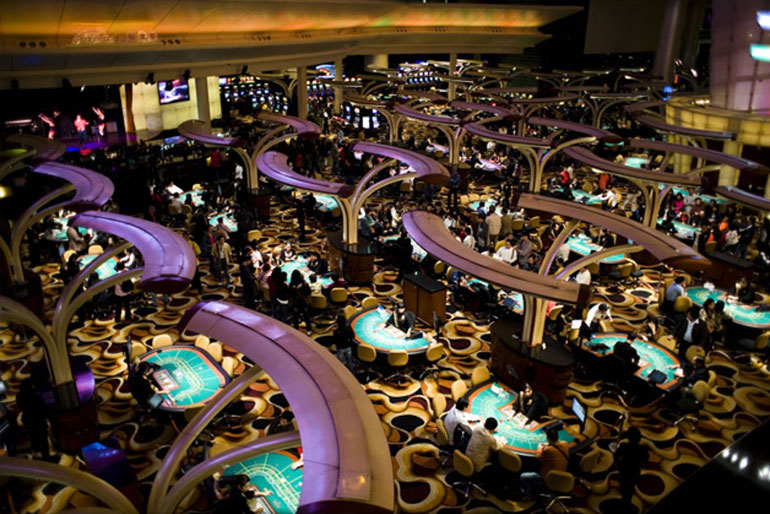Gambling in China is a highly regulated activity, with strict laws defining what is permissible and what falls under illegal gambling. The Chinese government views gambling as a significant social issue, and as a result, its stance on the matter has remained firm over the years. To fully understand what is considered gambling in China, it is essential to explore the legal framework, types of activities deemed gambling, and how these rules are enforced.
The Legal Framework
China’s Criminal Law and the Public Security Administration Punishment Law serve as the primary legal references for gambling-related issues. Article 303 of the Criminal Law explicitly states that organizing gambling activities for profit or being involved in serious gambling cases can lead to severe penalties, including imprisonment.
The government’s stance on gambling is also shaped by historical and cultural factors. Gambling was once prevalent in traditional Chinese society, but its association with financial loss, addiction, and crime has led to its prohibition in modern times. To maintain social stability, China has implemented stringent measures against gambling.
Legal Forms of Gambling
Despite its strict regulations, not all gambling is illegal in China. The country allows certain activities that are government-controlled and regulated. These include:
- State-Run Lotteries: The Welfare Lottery and the Sports Lottery are the only legal forms of gambling in mainland China. They are used to raise funds for public welfare projects and sports development. Participants can purchase lottery tickets to win monetary prizes, but these lotteries operate under strict government oversight.
- Macau’s Casinos: Macau, a Special Administrative Region of China, is an exception to the country’s anti-gambling stance. It is renowned as one of the world’s largest gambling hubs, offering casinos, poker rooms, and other gaming facilities. However, these activities are only legal within Macau’s jurisdiction and are tightly regulated.
- Horse Racing in Hong Kong: Similar to Macau, Hong Kong, another Special Administrative Region, permits horse racing and limited forms of betting. These activities are managed by the Hong Kong Jockey Club, ensuring compliance with local laws.
What Constitutes Illegal Gambling?
Under Chinese law, any form of gambling outside the state-approved channels is deemed illegal. This includes:
- Private Gambling: Betting money or valuables in private settings, such as card games or mahjong, is considered illegal if it involves large sums or organized efforts.
- Online Gambling: Hosting or participating in online gambling platforms is strictly prohibited. The government actively monitors internet activity to shut down unauthorized gambling sites and penalize offenders.
- Overseas Gambling: Organizing trips for Chinese citizens to gamble abroad is illegal. Many gambling promoters target Chinese tourists, but such activities are viewed as a violation of Chinese law.
- Unlicensed Lotteries: Any lottery activity not authorized by the state is illegal, and those involved can face fines and imprisonment.
Enforcement and Penalties
China’s enforcement of anti-gambling laws is rigorous. Authorities frequently conduct raids on illegal gambling dens and online platforms. Penalties vary based on the severity of the offense:
- Fines: Minor offenses may result in monetary penalties.
- Detention: Those caught participating in or organizing illegal gambling can face administrative detention for up to 15 days.
- Imprisonment: Serious cases, such as large-scale gambling operations, can lead to imprisonment of up to 10 years.
To curb gambling activities, the government also collaborates with international authorities to track and prosecute offenders operating across borders.
Social and Economic Impacts
The strict regulations on gambling in China stem from concerns about its negative effects. Gambling addiction can lead to financial ruin, broken families, and social unrest. The government’s zero-tolerance policy aims to minimize these risks and promote a stable society.
However, critics argue that the restrictions have led to the rise of underground gambling markets. These unregulated spaces pose significant risks, including fraud, violence, and exploitation.
Cultural Attitudes Toward Gambling
Despite the legal restrictions, gambling remains a popular pastime for many Chinese people, particularly during festivals and social gatherings. Games like mahjong and poker are often played without money to adhere to the law while maintaining the social aspect of these activities. Cultural beliefs in luck and fortune also contribute to the allure of gambling, even in small, informal settings.
Conclusion
In China, gambling is strictly controlled, with most forms deemed illegal except for state-run lotteries and activities within specific regions like Macau and Hong Kong. The government’s firm stance aims to protect its citizens from the adverse effects of gambling, such as addiction and financial instability. Understanding the laws and cultural attitudes surrounding gambling in China provides insight into the country’s efforts to balance tradition, modernity, and social responsibility.

